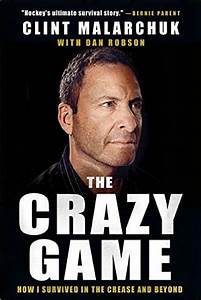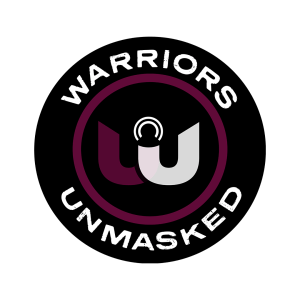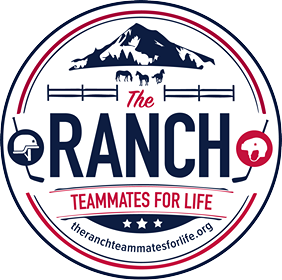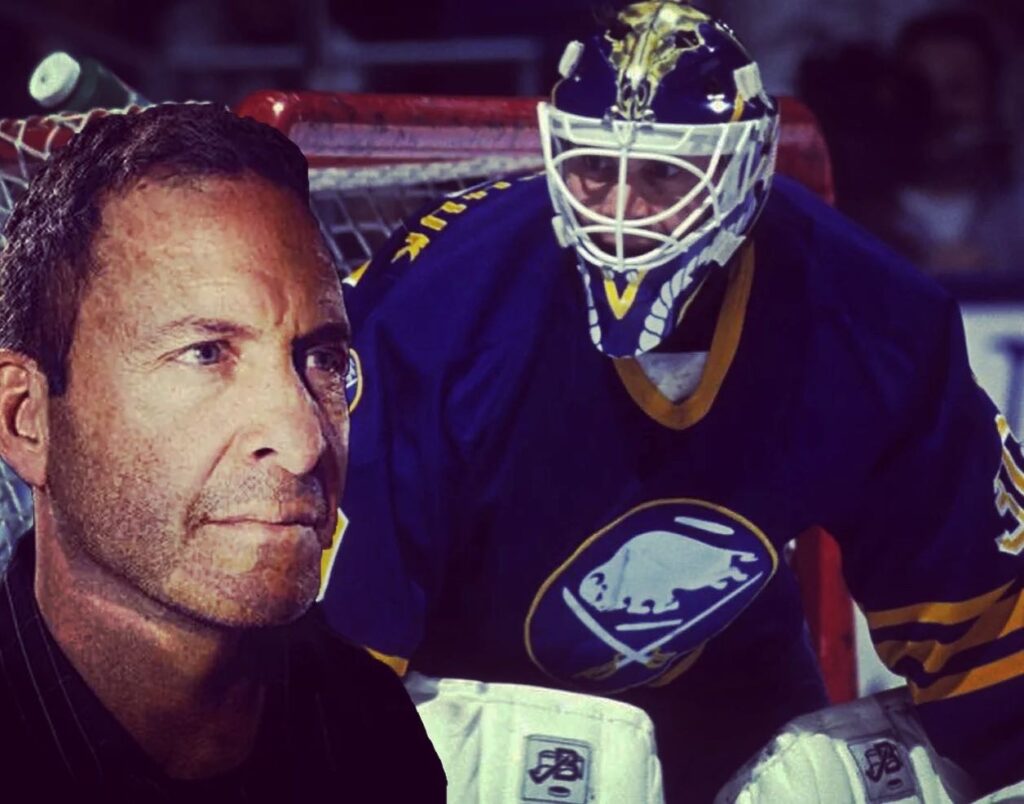Over the years, my site has opened so many doors, and has given me the privilege to speak with some incredibly influential sports people, and personalities from a wide array of industries.
I interviewed Clint Malarchuk over 5 years ago and we discussed his new book, his career in the NHL and most importantly his struggle with mental health and how he is using and sharing his experiences to help countless others. I saw Clint tagged in a LinkedIn post not too long ago. It was discussing his involvement in The Ranch – Teammates For Life. What an incredible organization focused on helping ex-NHLers as well as our combat veterans and first responders suffering from anxiety, depression, addiction, and mental health issues.
The GM’s Perspective: It’s been over five years since we last spoke. How have you been?
Clint Malarchuk: Been really busy with The Ranch Teammates for Life. I, I don’t think it’s been two years, but it’s been over a year, a year and a half of a labor of love for all of us that are involved. And so I got good news about The Ranch. First of all, we got a facility, which is huge. All of a sudden, we got a home, and that feels good for us. I mean because before, it was just a vision and meetings. And so what’s happening on August 13th, we have a ribbon cutting in Minnesota, in Sauk Center, Minnesota. And that’s where Melony Butler, the founder of the facility, it’s called the Eagle’s Healing Nest, in Sauk Center, has basically donated a building that we can renovate.
Yeah, I mean the fundraising with our vision is to buy a property, an old farm with a house, and go that way, but that’s millions of dollars. And so, Melony was so generous to donate, and her facility is a facility for veterans, those struggling with PTSD, or homeless. I believe it’s 130 acres. And it’s got a lake, it’s got fishing, it’s got all the things for healing for the veterans.

GMs: That’s amazing.
CM: We have a curriculum that we’re going to follow. I am in that curriculum right now. I went to a place in Virginia, I went there, I think it was end of March. And so we want to follow that same curriculum. On the 13th I’m going to give a speech and then a dear friend of mine and Melony’s, Jason DeShaw, is going to perform.
GMs: That’s awesome. And before we jumped into this, I’m in North Bay and I saw you had an honorary doctorate from Nipissing University. I would love to hear about how that happened. Is it because of all the work that you’re doing with mental health and that sort of thing? Would love to be able to share how that came about, sir!
CM: Well, boy, that’s been a while now and I was overwhelmed, because that’s such a great honor. I’m a doctor!! It’s funny because my nickname has been Doc because of being a horse dentist, and chiropractor, and all that. So anyways, how that came about, I’ve been up to North Bay a number of times speaking, and it’s at the big graduation and there’s a speech, and then you have to address the student body, the graduates. It was one of the greatest honors I’ve ever had really, to tell you the truth. I barely got out of high school and here I am addressing the student body. So that was fun, it was cool, it was professional.
GMs: Yeah, that’s great to hear, because it’s not like they hand that out to someone who doesn’t deserve it. You’re doing the work, and you’re being rewarded and honored for everything that you’re doing, so congratulations.

CM: We have a podcast too, being a mental health advocate as yourself, you should listen to our podcast. It’s called Warriors Unmasked, and we just finished doing one about an hour ago.
GMs: I was browsing through LinkedIn, I saw a post that mentioned you and your organization, The Ranch Teammates for Life. For the people that are going to be reading this, what is The Ranch? What’s the mission statement? What is the organization about?
CM: Mark Pavelich, Miracle 1980, won the gold for USA, Lake Placid, the whole deal. Then he went on to play with the New York Rangers. And then Mark got into some real mental health issues, and I don’t know if you know, he died by suicide in March. And for me, that was really, really hard because I got him into the facility where he died, so I had a real emotional breakdown. That’s where I went and got help in Virginia, and the curriculum that we’re going to follow. Mark’s sister, Jean, and ex-Rangers teammate Barry Beck, had this idea to start this ranch. It’s a therapeutic healing center for NHL hockey players and veteran hockey players suffering from concussions, traumatic brain injuries, things like that, depression, anxiety, all of those things.
I always had the same idea to do something like this, and I was approached, and I said, “Well shit, this is my idea. My dream.” And so it was an easy sell. So I jumped in, got on board, Tom Gorence, former player in the NHL, he came on board and more and more volunteers came in. They wanted me to be president and I said no. I can’t even barely send an email!! So I’m vice president.
Our vision was to buy a property, or build a facility, or buy an old farm with houses, and that was going to cost a lot of money. So then with Mark, I got him into the Eagle’s Healing Nest. With help from Jason DeShaw, a country music singer, he knew Melony Butler, the founder, and one thing after another it all started to come together. And it was no-brainer when Melony said, “Look, I got a couple buildings here. You guys can renovate it and we’re like holy crap.” And that wasn’t our big vision, but we can expand if we really want to or need to, to buy property or buy a facility of some sort. But right now, this is a great step for us. And Melony, what an incredible woman.

GMs: So if someone was struggling and they reached out to you, what is the process? How does it work? Is it your team that reaches out? How do they get support? What are the inner workings of it?
CM: We’re connected with the NHL Alumni Association. Brian Burke is going to be an advisor. That’s huge. And he’ll be at a golf tournament. When players are struggling, it works two ways, people see it and go, “You need help,” or the person himself goes, “My life is going down the drain.” So they can contact maybe us directly or the NHL Alumni Association. Hopefully we get tied in with the PA and, with Brian’s help, the NHL. So we become one of the places where they send players or former players. If a player is struggling, maybe he calls the Alumni Association, or the Players’ Association, or the NHL, or a former team. “So that would open up certain avenues that show we want to be a facility that the NHL, or the Alumni Association, or the Players’ Association can send to us. That’s the next step.
GMs: Yeah, of course. No, that’s great, thank you. And is it strictly hockey? What if a baseball player, NFL player, or just someone saw your site and said, “You know what? I need help.” Is that something you’d be looking into or is it strictly hockey players?
CM: I’ve spoken at every Canadian military base, I’ve spoken at several in the US, because of my struggles, which really got magnified with my PTSD when I cut my jugular. So soldiers and former soldiers can really identify with my story, even though I’m a civilian, but I’m a hockey player so I know what it is to go to battle, to go to war, in a different sense. And I do a lot with Wounded Warriors, things like that.
When I came on, they said “Well, we need to help our veteran hockey players,” and all these things, or current players. And I said, “Hang on a second. I’ve worked with a lot of veterans and because I’ve spoken at bases and I’ve made friends that are veterans, I said, “We need to include military veterans.” They said, “Oh, of course. That’s a great idea.” And of course, I think absolutely, 100%, we will go to every sport and we will not turn anybody down.
You know what I really like, Devon, is that more and more high-profile people and athletes are coming out and talking about it. And I could be wrong, but this is not the most humble Clint, but I think Theo Fleury, he started it, and I followed up, and now there’s more and more, in every sport, coming out.
GMs: absolutely.
CM: But I really think Theo and I were the pioneers on that with this.

GMs: Before you guys, it was in the closet, no-one really talked about it. After I spoke with you, I spoke with Corey Hirsch, who has been very open about his struggles.
It’s powerful when you hear these stories and encounters. I remember when we spoke, you were talking about people that would come up to you after shows or people that would reach out, and tell you how important your message is.
CM: That keeps giving guys like me the fuel. It’s hard to go up there and tell your story, but when you know the response is going to be positive from people coming up and shaking your hand, or wanting a hug, and crying, and saying, “Me too, I can’t believe I’m your twin, but I’ve been suffering in silence,” that’s the reward. And again, with the stigma, the big stigma, people probably suffer in silence and darkness, and by me sharing my story, they come up and share their story, and they get help or get well.
GMs: Thank you for everything you do Clint
…
For those looking for more information on The Ranch – Teammates for Life, here is their site and FB.
And if you would like more information on Clint Malarchuk, you can visit his website here or listen to his podcast, Warriors Unmasked




